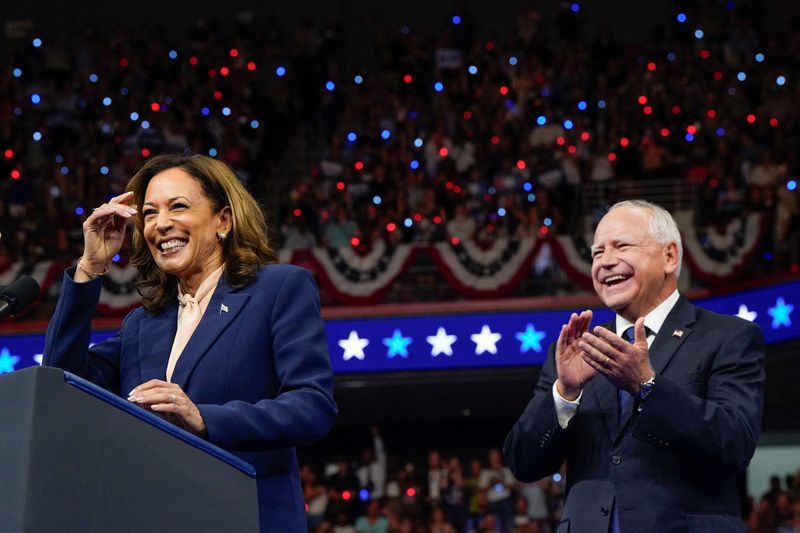
Harris, currently the Vice President of the United States, will be looking to build on the momentum she has gained early in her campaign, while steering clear of the missteps that marred her first presidential run in 2019 and her initial period as vice president.
The interview also presents an opportunity for her to draw a sharper distinction with Republican nominee Donald Trump, engage with undecided voters, and emphasize her qualifications to lead the country during these challenging times both domestically and internationally.
After this, Harris and Trump will face off in the first presidential debate on Sept. 10. An additional debate could be scheduled for October.
Harris currently holds a narrow lead of about 2 percentage points over former President Trump in national polling averages, with a slight 0.5 percentage point advantage in the key swing state, currently expected to be Pennsylvania, which could determine the electoral outcome.
“Prediction market averages imply 52% odds that Harris wins in November,” Goldman Sachs said in a Wednesday note.
Following the Democratic convention, Vice President Harris has made slight gains both nationally and in the key swing state, though there have been few high-quality polls since the event.
“While convention bounces in recent years have been worth around 2pp, we have been expecting Harris’s rise in support ahead of the convention to contribute to a smaller-than-average post-convention bounce,” Goldman Sachs strategists said.
With RFK Jr. dropping out and endorsing Trump, polls indicate a 1.5 percentage point boost to Trump’s margin when RFK is excluded as an option but other third-party candidates remain.
Prediction markets have seen little change, with the odds of a Republican White House victory increasing slightly. Republican sweep and Democratic divided government are now viewed as the most likely scenarios, each with roughly 30% odds.
Trump’s favorability has held steady at 43%, while Harris has seen a rise in both her favorability and approval ratings, with the latter now slightly above Trump’s level ahead of the 2020 election. Meanwhile, Tim Walz’s approval stands 5 percentage points ahead of Trump’s running mate JD Vance’s.
To read the full article, Click Here
